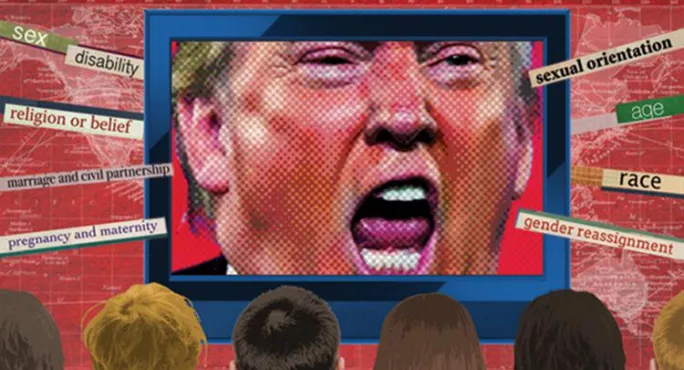I’m depressed. No, not clinically. This isn’t going to be a piece about mental health.
But I’m gloomy after reading that an Ipsos MORI poll has found that “education and schools are less likely to be named as important than unemployment and housing”. Reporting these findings in the TES, Charlotte Santry added that “only 1 per cent of the public considers education to be the most important issue facing Britain today”.
The NHS was the top concern, followed by Brexit, immigration, the economy, housing and unemployment: education crept in at ten.
Those other issues are pressing: and the people polled are likely to list either topics in the news right now (like the health service) or things that perhaps impact on them (economy, housing and unemployment).
It doesn’t necessarily mean that people don’t care about education: just that other things preoccupy them.
It should go without saying that I think education is important. Nonetheless, I’m not convinced I’d want to go back to education being top of the government’s agenda. Ever since Tony Blair announced as his 1997 election priorities, “education, education, education” people like me have had reason to regret our field of work becoming one where politicians want to make headlines.
Blair built a lot of schools, something long overdue (even if the Private Finance Initiative - PFI - proved dodgy). But schools suffered one wave after wave of change as successive education secretaries (who rarely stay long) imposed ill-informed personal agendas and quick-fixes. With hindsight, misquoting Oscar Wilde, there’s only one thing worse than government ignoring education: when it takes an interest.
Of course people won’t cite education as their top concern. There’s not a crisis: unless you happen to be running a school and the new national funding formula leaves you shorter than ever. Still, when the first school, academy chain or local authority implodes due to inadequate funding, education will make such headlines as “School funding in meltdown”. Then it may get closer to the top spot in people’s consciousness.
Education shouldn’t need crises to gain attention. It will rarely be a burning topic, because it’s always with us. But that’s the point: it is always with us and is vital for every generation, every year-cohort that receives it.
The TES report closed with a quote from Sarah Kitchen, research director in the Children and Young People Team at NatCen Social Research: “the findings may be down to the fact that education has a direct impact on fewer people”.
Excuse me? Education has an impact on every individual life. It also furnishes a future for the country. We aren’t producing enough skilled workers, engineers, technologists, computer programmers, doctors, nurses. Only the education system can provide the solution. That should be a massive area of concern for the country, and for government which, for all the improvements it constantly trumpets, has failed for decades to address those skills shortages.
Why I begin to despair is still more basic. Go to any developing country: talk to any refugee seeking entry to this country; all will agree. The route out of poverty and ignorance is education. But ordinary people take it for granted here: it’s so far down our priorities that we meekly accept that it’s not meeting our national needs, and we don’t complain loudly enough that it’s chronically underfunded.
In a post-truth, fake news world, where leaders of huge powers think it’s acceptable to lie to their people and to the rest of the world: where a tyrant holds on to power by assassinating his closest relative; where our country voted on whether to leave the EU but, because it wasn’t election, was fed lies and falsehoods on both sides; in such a world and country, shouldn’t we push education up the agenda a bit?
I don’t blame Ipsos MORI, nor the people questioned: I’m sure the findings are accurate.
But, dear God, I do worry about what sort of country we’re creating.
Dr Bernard Trafford is headteacher of the Royal Grammar School, Newcastle upon Tyne and a former chair of the Headmasters’ and Headmistresses’ Conference. The views expressed here are personal. He tweets at @bernardtrafford
To read more columns, view his back catalogue.
Want to keep up with the latest education news and opinion? Follow TES on Twitter and like TES on Facebook




